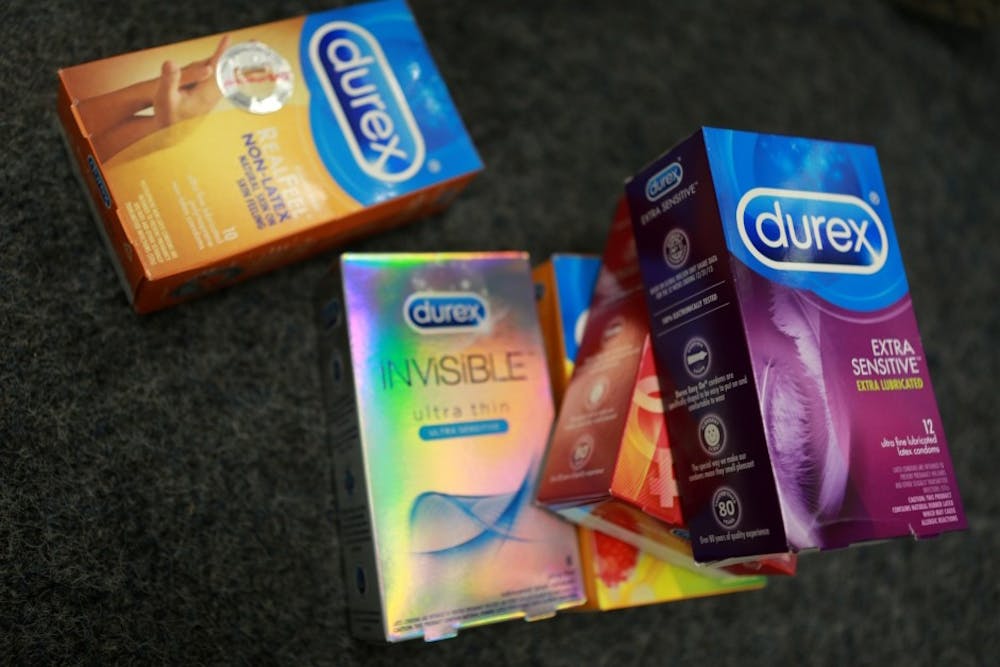This year at Penn, February is Safer Sex Awareness Month.
Traditionally, the month has been celebrated as HIV/AIDS Awareness Month, but this year, the scope was increased by the Office of Health Education — a branch of Student Health Service — to address other sexually transmitted infections and sexual assault.
A particular concern of OHE is reaching freshmen who are adjusting to the college environment and may be learning how to practice safe sexual habits. Students come from many different backgrounds and are likely to have varying levels of sexual education.
Wharton freshman Shane Meyers said that he felt that the importance of sex education was underscored at his private arts high school.
“I went to a fairly progressive high school, but even still, I felt like there wasn't much of an emphasis on sex ed,” he said. “From kindergarten to senior year, I only had to sit through two hours of sex ed. And when we did have sex ed, it was just with our normal science teacher who never seemed happy about the fact that she had to teach sex ed.”
In the College Houses, residential advisors and graduate associates are expected to enforce community standards of health and safety. College Houses and Academic Services trains them to be ready if a resident reports rape or sexual assault, or discusses contraction of STIs. They know to contact the appropriate administrate services — whether that be the Penn Women's Center, Department of Special Services, Office of the Sexual Violence Investigative Officer for cases of sexual assault or SHS for STI-related concerns.
Throughout the past few weeks, RAs and GAs have been encouraged to hold open discussions with their residents in order to address these issues in an open environment. Eliana Yankelev, a College senior and RA in Ware College House, chose to screen the acclaimed film "The Hunting Ground," followed by a discussion. This 2015 documentary exposes the severity of rape crimes across United States college campuses. But only four students showed up.
“Those who came learned a ton and we had a great discussion about it, but I was disappointed in the turnout,” Eliana said. “This is a topic I am incredibly passionate about, and I try to engage my students as much as possible about combatting it and being active bystanders.”
RELATED:
Women's Health has your sex life covered
Administration finds results of AAU sexual assault climate survey "deeply troubling"
Resources for further education about healthy, safe sex are prevalent throughout Penn's campus and residential life — it is a matter of students actively seeking them out. Students who have done so said they are satisfied with the results.
One College freshman, who preferred to remain anonymous, said that he felt very supported by SHS during a recent STD scare.
“They gave me a lot of different resources and seemed to genuinely care about my concerns, even if they were a little silly,” he said. “Penn might be lacking in how much it advertises its sex ed resources … ”
Another freshman, who also preferred to remain anonymous, said she felt comfortable reporting an instance of sexual assault she witnessed to her RA late last semester.
“I knew immediately that he would be able to provide this girl with the support she needed,” she said. “I had faith that they would be able to help her through the aftermath. I had faith that they would put her in touch with the resources she needed for recovery."









